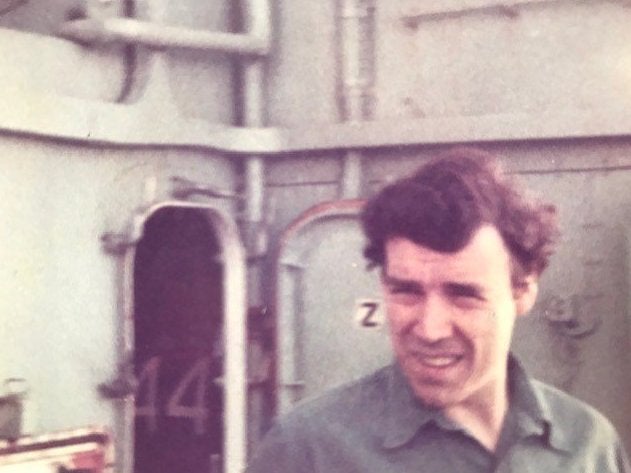Navy veteran fired 'for being bisexual' sues government to have medals returned
Joe Ousalice was discharged after senior officers warned he might 'corrupt' other sailors
Your support helps us to tell the story
From reproductive rights to climate change to Big Tech, The Independent is on the ground when the story is developing. Whether it's investigating the financials of Elon Musk's pro-Trump PAC or producing our latest documentary, 'The A Word', which shines a light on the American women fighting for reproductive rights, we know how important it is to parse out the facts from the messaging.
At such a critical moment in US history, we need reporters on the ground. Your donation allows us to keep sending journalists to speak to both sides of the story.
The Independent is trusted by Americans across the entire political spectrum. And unlike many other quality news outlets, we choose not to lock Americans out of our reporting and analysis with paywalls. We believe quality journalism should be available to everyone, paid for by those who can afford it.
Your support makes all the difference.A Falklands veteran forced out of the Royal Navy because of his sexuality is to sue the Ministry of Defence to have his medals returned to him.
Joe Ousalice was discharged after senior officers learned he was bisexual and warned he might ”corrupt” others sailors.
The 68-year-old faced a court martial in in 1993 after being accused of being in bed with another male sailor.
Mr Ousalice has always denied the charge, but was found guilty and dismissed on the grounds his conduct was prejudicial to good order and naval discipline.
The judgment brought an end to his 18-year naval career, during which he served in the Falklands, Northern Ireland and the Middle East.
The Navy also confiscated his Long Service and Good Conduct medal and three Good Conduct badges at the time of his dismissal.
He is now taking the Ministry of Defence to court to have them returned.
Mr Ousalice’s lawyers, from human rights organisation Liberty, argue he was discharged “entirely because of his sexuality”.
They say that other medals confiscated from military personnel because of their sexuality should be returned to the
Gay people were not allowed to serve in the military until a rule change in 2000.
Mr Ousalice said he lived a “double life” while he was in the Navy and was careful not to associate with other sailors whom he knew were gay.
“I was watching every day what I was saying, what I was doing,” he told the BBC. “After the court martial was completed, a guy came in with a pair of scissors and said ‘Sorry, mate, I need your medal’, and just cut the medal off me. The fact that I had been to the Middle East, to the Falklands, to Northern Ireland six times means a lot to me and that medal is proof to me that I was good enough for all those years, and yet somebody can just come and take it from you.”
In a separate interview, Mr Ousalice, who lives in Southampton, told the Press Association news agency: “As far as I know, it’s never as bad as it once was but nevertheless it still goes on. My message to the Navy is to stop being so bigoted and grow up. To the people it happened to, I would say go ahead and don’t be ashamed of it – fight your case. I’m not the only one who served and lost his medals, there are hundreds of others.
“Every time I’ve been in touch with them they’ve never given me a proper answer, just that they’re looking into it. As nobody ruffles their feathers, they don’t care. What I’m doing at the moment is getting them to sit up and think.”

This year marks two decades since a landmark case of ex-Royal Air Force personnel Jeanette Smith and Graeme Grady.
They took the UK government to the European Court of Human Rights (ECHR) in 1999 after being discharged from the RAF after investigations into their sexuality
After the government won at both the High Court and Court of Appeal in the UK, the ECHR found the investigation and discharge was a breach of their right to a private life under Article 8 of the European Convention on Human Rights.
“What happened in ‘97 in the European courts where the government lost the case, since then everything has quietened down,” said Mr Ousalice. “In the armed forces you have to rely on each person to save your skin. You have to rely on everyone you work with, otherwise one sour apple and everything falls apart.
“I could rely on all the lads I worked with to do their job but when I was in the armed forces there was always that bigoted attitude and it stemmed from the top. You’ve got officers coming out with comments and things which they shouldn’t be. You can order somebody to not say something about someone being gay but you can’t change that person’s attitude.”
An MoD spokesman said it would be “inappropriate” to comment as legal proceedings are ongoing.
He added: “We are currently looking at how personnel discharged from service because of their sexuality, or now abolished sexual offences, can have their medals returned.”

Join our commenting forum
Join thought-provoking conversations, follow other Independent readers and see their replies
Comments